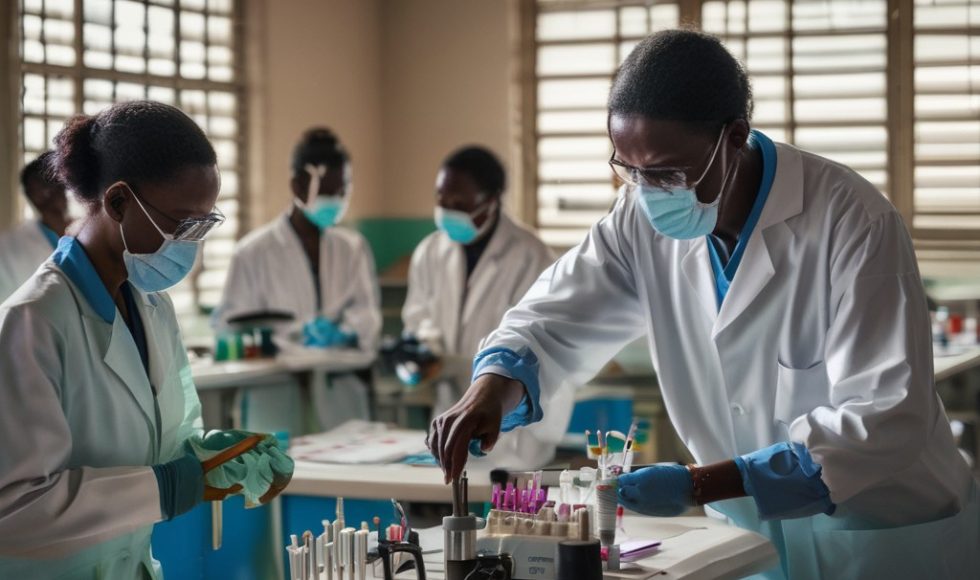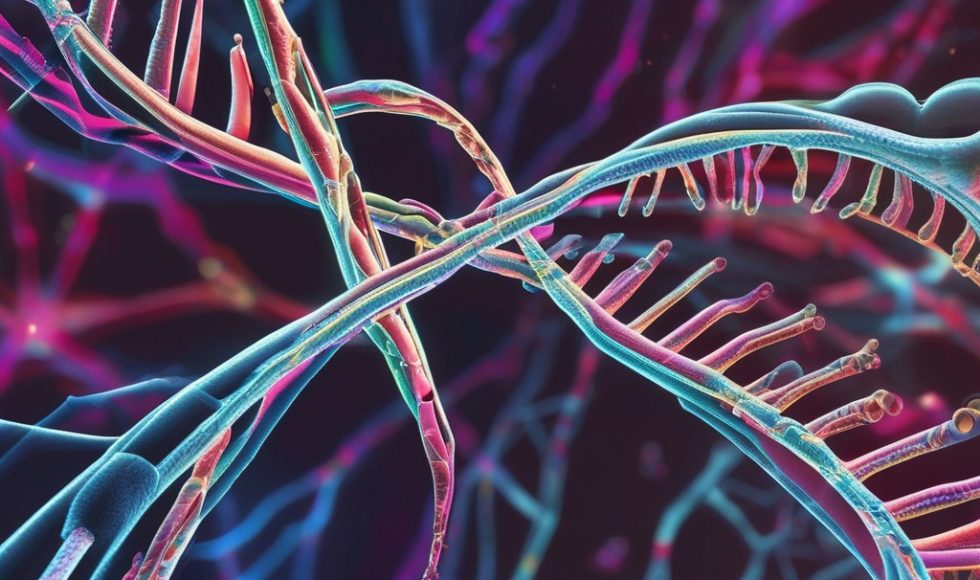Logan Mulroney from the EMBL-EBI & Center for Genomic Science at the Italian Institute of Technology in Italy presented at London Calling 2024 “A survey of human RNA modifications by direct RNA nanopore sequencing.” Mulroney described RNA modifications as “chemical alterations to canonical nucleotides” and mentioned that they have been implicated in diseases such as […]
Alex Shaw from the Imperial College London in the UK spoke at London Calling 2024 about “Early detection of poliovirus outbreaks in the DRC from 2021-2022.” They have been doing poliovirus sequencing training with partners for several years, focusing on direct sequencing methods with Nanopore: Direct molecular Detection and Nanopore Sequencing (DDNS). Shaw explained that […]
Tonight, I watched Jade Foster from the University of Southampton in the UK present at London Calling 2024. The session’s title was “Identifying m6A RNA modifications in neuroblastoma cell lines.” They explained that epitranscriptomics describes the modification of RNA molecules. There are over 150 RNA modifications determined by readers, writers, and erasers! This process is […]
Sofia Kudasheva from Earlham Institute in the UK spoke at London Calling 2024 about “Long-read CaptureSeq identifies novel RNA isoforms of psychiatric risk genes.” They noted that alternative splicing is “a key regulator of neuronal differentiation,” occurring in 95% of human genes and involved in disorders. The team wanted to better understand the role of […]
Umran Yaman from the UK Dementia Research Institute at University College London in the UK presented at London Calling 2024 on “Long-read transcriptomics shows synaptic adaptation to amyloid pathology in Alzheimer’s.” Yaman is a Ph.D. candidate and described how the accumulation of amyloid drives microglial activation. They performed long-read sequencing of cDNA from mice. They […]
Michael Nakai from the Peter MacCallum Cancer Centre in Australia spoke at London Calling 2024. The session title was “Isopod: detecting differential isoform usage from long-read single-cell data.” Nakai is a Ph.D. candidate and explained why we are interested in isoforms and splicing events. With long-read sequencing, information about splicing and different isoforms can be […]
We had a productive and fun day working in Minneapolis on the PALM and Vision and Change project! I am glad I was able to come here and work with friends. Tonight, I watched the London Calling 2024 session “Plant T2T genome assembly using ultra-long and adaptive nanopore sequencing” by Bosheng Li from the Institute […]
We often use Oxford nanopore reads for de novo assembly of genomes and plasmids. Sean Mckenzie, Associate Director of Genomic Applications Bioinformatics with Oxford Nanopore Technologies, provided an update on assembly performance. They described de novo assembly as “the process of reconstructing an organism’s genome sequence from a set of genomic sequencing reads.” There are […]
Janessa Laskin from the BC Cancer Centre and The University of British Columbia in Canada spoke at London Calling 2024 on the “Application and use of long-read sequencing in personalized cancer medicine.” Laskin explained that medical oncologists are motivated to find effective treatments for cancer and identify vulnerabilities. The Personalized OncoGenomics (POG) started in 2012 […]
Hanlee Ji from Stanford University presented at London Calling 2024 on “Genomic sequencing for characterizing tumor minimal residual disease versus early cancer.” Ji spoke about apoptosis and circulating tumor DNA. Ji and the team evaluated the recurrence of metastatic colorectal cancer with circulating DNA monitoring. Early detection of breast cancer can benefit from nanopore sequencing […]











